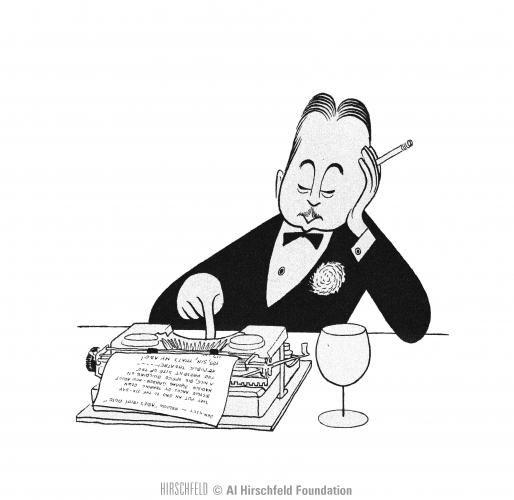The Algonquin ethos is perfectly content is its pointlessness. It’s not a formula for any kind of traditional measure of success, nor intended to achieve any specific purpose. It’s defined by a spirit of infinite and cheerful uselessness that is found in all forms of play, and born from a desire to avoid the evils of work. When we embrace our laziness, we feel less guilty about the pursuit of leisure. We allow ourselves the time to dream and create versus being consumed by daily practical concerns. The leisurely life is an artful life, one that expresses the curiosity, humor and waywardness of our essential humanity.
I believe that each of us finds happiness through the art of living; creating without regard to obligation or work. Great art satisfies the artist first, and others may never appreciate it, but that creative freedom is a reward in itself. A key reason we aren’t happy is because our creative power becomes hostage to creating value for others, versus enjoying a life that resonates with our own sense of creative worth. We don’t allow ourselves to ask the question, “What do I love?” and instead focus on “What must I do?” because “What I love” leads down the dangerous unproductive path of leisure, where time is frittered away and career opportunities are lost. Yet it’s in the mode of leisure when we’re our best creative and authentic selves, where our attention is on creating for creating’s sake, rather than with consideration to how our results will be compared to others and measured to determine our relative value to an organization.
When we are at leisure, we find ourselves thinking, “I wish I could do more of this.” So whether we’re playing golf, hanging out with friends at a bar, or engaged in a game of Clue with the kids, doing more doesn’t have to mean repeating the same activity, it’s about what the activity represents; relaxation, camaraderie, relatedness. We limit this time because we don’t see it as productive way to pay the bills, to which we devote the majority of our energy, despite that we rarely derive joy from work. Few of us can get paid to play golf, but those who are passionate about it become better at it, which opens up opportunities to play with people who can often help their careers. Hanging out in a bar with friends strengthens social networks, a key to living longer. Playing a meaningless game with our kids reveals a lot about their nature and helps us better relate to them.
I would say that for all the hard work I put in trying to please clients over the years, the real breakthroughs in my pursuits have come from sitting down with a business owner over a bottle of wine. Am I saying that having a drink has made a difference? Yes. That’s exactly what I’m saying. It’s a social lubricant and helps people speak the truth. People generally don’t share themselves as readily over a cup of tea. If you consider drinking sinful or a waste of calories, you probably have no idea what I’m talking about. Like other forms of leisure, it seems counter-intuitive to engage in it as a way to help one’s career, but an appreciation for the art of drinking, sport, smoking, idle conversation or any other impractical activity is a chance to express ourselves freely and in doing so, enhance relationships.
The key distinction in the unbounded life, is that all of these leisurely activities are enjoyed for their own sake, without the intention of utility. It’s not about getting drunk with people to try to win favor. A round of golf with a client won’t help you if you’re too focused on getting a contract to enjoy the game. People can sense a suck-up as well as someone who is so engaged that they are beyond keeping score or track of time. Living in the joy of the moment is contagious. It’s the ultimate way to win friends and influence people. Everything else, every trick or technique, every winning strategy, is an inauthentic shortcut and can be found in the self-help bullshit section of your local bookstore.
Following one’s bliss is the beginning of a virtuous circle of value creation. We do what we love, we share it and encourage others to do likewise and everyone is happier. Happy people are more productive and live longer, while the stress that comes from continually trying to satisfy others or live up to an unattainable idea of ourselves, literally breaks our hearts. When we stop trying so hard to be happy, we’re free to be who we are. We’re all taught that by satisfying our obligations (to family, institutions, and the larger community), we should derive satisfaction in knowing that our contributions make a difference. The unbounded life assumes that the universe doesn’t care one way or the other, so it’s all up to us how seriously we want to take ourselves.
When we choose to celebrate the art of living versus the business of living, we create space for possibility, not just strive for more efficient transactions. The art of living is the art of loafing; getting things done through creative laziness, purposeful frivolousness and letting ourselves enjoy the ride to nowhere.
I want to say, in all seriousness, that a great deal of harm is being done in the modern world by belief in the virtuousness of work, and that the road to happiness and prosperity lies in an organized diminution of work. — Bertrand Russell
